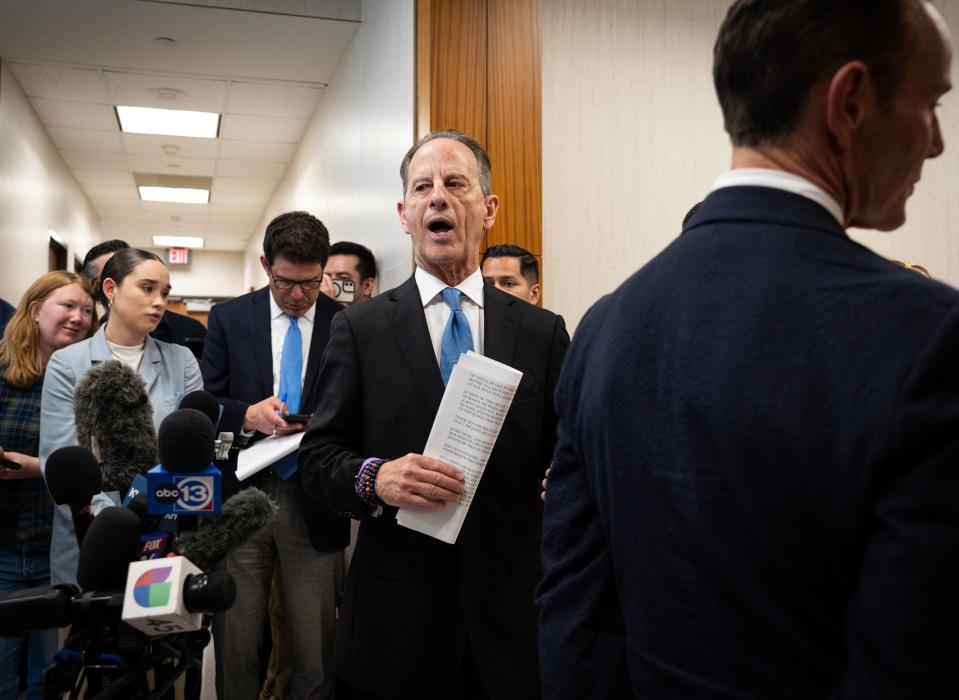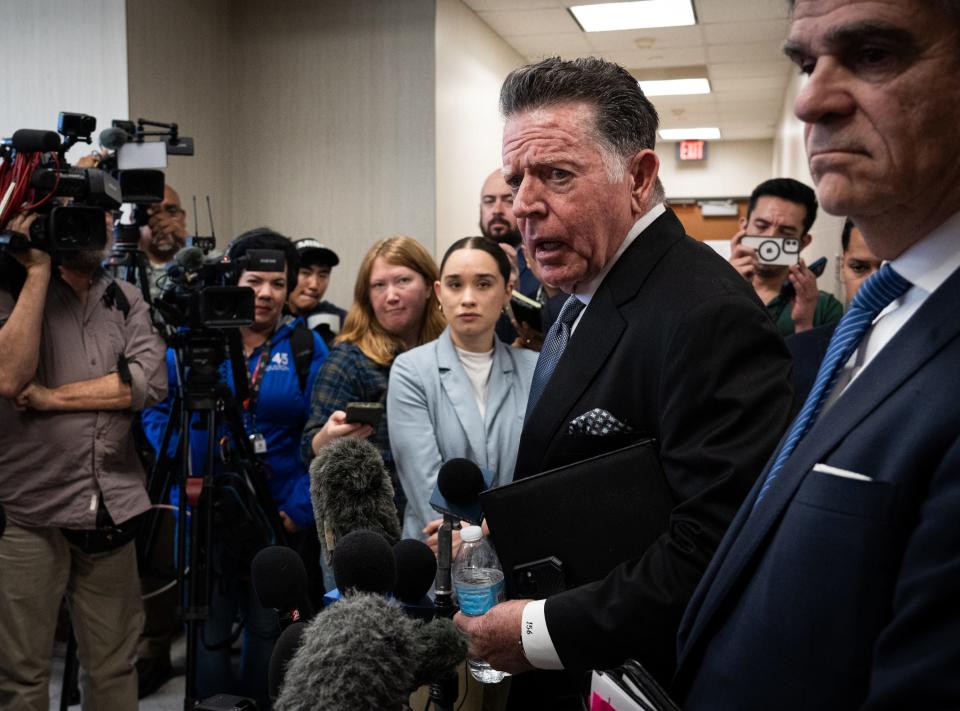Will Texas AG Ken Paxton's securities fraud deal be public? Probably not. Here's why.
- Oops!Something went wrong.Please try again later.
With embattled Texas Attorney General Ken Paxton and state prosecutors cutting a deal Tuesday to end the state's nearly nine-year criminal securities fraud case against Paxton, the public might never know the details of how the three-term Republican officially responded to the charges because the agreement legally can be kept secret.
The Texas Public Information Act allows that information to be kept from public disclosure as such agreements do not equate to a criminal conviction. Brian Wice, the special prosecutor on the case, said Paxton's pretrial intervention agreement is not a public record. "It is not filed with the papers of the court," he told reporters Tuesday after announcing the deal in a Harris County state District Court.
Paxton was indicted in 2015 for three securities fraud felonies stemming from his work to seek investments for a Dallas-area tech startup without disclosing to potential clients that the company was paying him $100,000 in company stock for each referral.
As per the terms of the deal announced Tuesday, Paxton's charges will be dismissed if he completes 100 hours of community service in Collin County, enrolls in 15 hours of legal ethics training and pays $271,000 in total restitution to investors. The actual agreement, though, was not released to the public.

How Paxton opined on Travis County deferred prosecution agreement
There is a level of irony in play in Paxton's case. In 2016, his office released a formal opinion that a deferred prosecution agreement in a misdemeanor case that the Travis County attorney's office had reached with a defendant in a misdemeanor domestic violence case should be publicly released.
The process involved more than a few twists and turns, including a lawsuit that triggered an appeal, an appeal to the Texas Supreme Court that the justices declined to hear. The settlement of Paxton case is called a "pretrial diversion agreement" because of the level of supervision he is subject to over the agreement's 18-month life.
According to an April 3, 2020, write-up for the Texas District and County Attorneys Association, the Travis County attorney's office asked the attorney general's Open Records Division to weigh on whether a public information request by the victim of domestic violence should be disclosed.

The county prosecutors argued that it should not because, under long-standing custom, releasing the agreement "would interfere with the detection, investigation, or prosecution of crime." That's because deferred agreements come with strings attached, meaning the defendant must take certain actions and live up to certain agreements for a specified period before the charges are wiped clean from the record.
More: Exclusive: Texas AG Ken Paxton could see criminal charges dropped in deal with prosecutors
Failing to meet such obligation can result in the charges being reinstated. And if they are, and the defendant is convicted, then the deferred agreement could be made public.
Same case, two different attorney general opinions
Paxton's Open Records Division agreed with the prosecutors, seemingly closing the books on the matter. However, according to the Texas District and County Attorneys Association article, a second open records request was filed in the same case, seeking the original agreement, "as well as all investigative reports, statements, witness statements, court documents, filings, and any written documentation of the investigation and proceedings in the criminal case that was resolved by deferred prosecution."
This time, the open records office said the agreement could be released. The supporting documents, however, could not be.
"Because a copy of the agreement was previously released to the defendant, we find you (the county attorney's office) have not shown release of the agreement will interfere with the detection, investigation, or prosecution of crime; thus, the county attorney's office may not withhold the submitted information," the attorney general's office's official response said.

How the courts ruled on deferred prosecution agreement
The Travis County attorney's office sued the attorney general's office, arguing that the state's open records laws allow deferred prosecution agreements to be kept from public view, unless they are violated by the defendant and a conviction is obtained.
More: Political baggage only seems to make Texas Attorney General Ken Paxton grow stronger
The trial court sided with the Travis County attorney. And, in November 2019, the state's 3rd Court of Appeals upheld the ruling, rejecting the attorney general's opinion that the county effectively released the agreement publicly because the defendant was given a copy.
"The County Attorney does not 'voluntarily' provide a copy of the DPA to the defendant but is, rather, required by law to provide it to the defendant," the appeals court said in its ruling, which was the final say on the matter after the state Supreme Court declined to review the case.
This article originally appeared on Austin American-Statesman: Will Texas AG Ken Paxton's securities fraud deal be made public?

